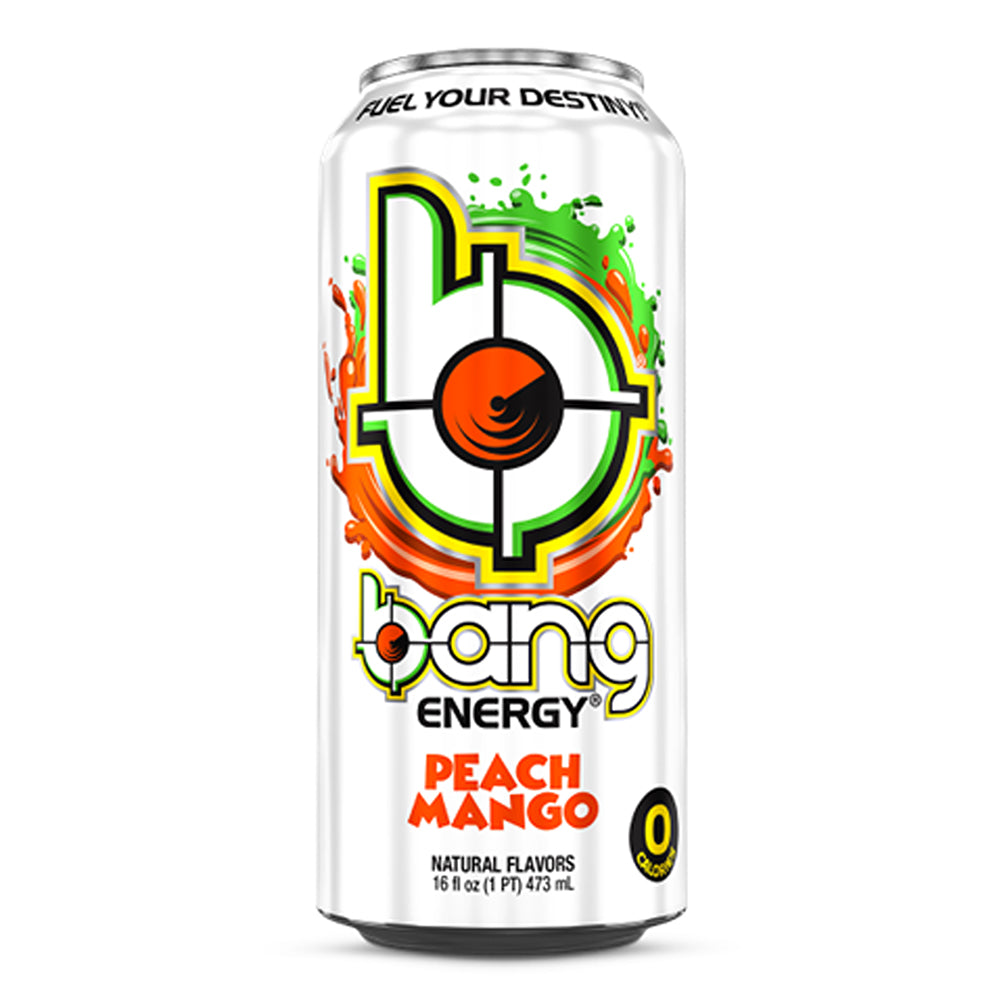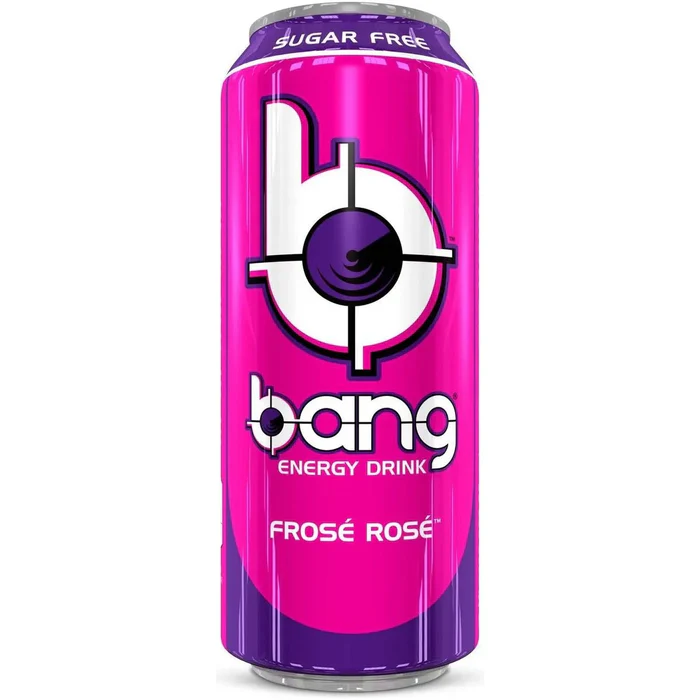Introduction to Bang Energy Drinks
Are bang energy drinks bad for you?Bang Energy Drinks burst onto the scene as a popular choice for those seeking an energy boost. These drinks claim to offer heightened performance, focus, and even muscle recovery.

Made by Vital Pharmaceuticals, Bang quickly gained a following, especially within fitness communities. They come in various flavors, each can boasting zero calories, sugar, and carbs. It’s important to note, the drinks are infused with vitamins, amino acids, and caffeine.
Many wonder, though, are Bang Energy Drinks bad for you? There is a mix of facts and myths surrounding this topic. In this blog, we’ll explore what Bang Energy Drinks offer, assessing their nutritional content and potential health impacts. Our goal is to provide a clear understanding of these beverages to help you make informed decisions about your energy drink consumption.
Nutritional Content of Bang Energy Drinks
Understanding the nutritional content of Bang Energy Drinks is crucial. Each can comes packed with distinct ingredients. They often include a blend of vitamins, such as B-vitamins, which are essential for energy metabolism.
Caffeine is a major component, with each can containing about 300mg. For context, this is roughly equivalent to three cups of coffee. Caffeine is known for its energy-boosting effects.
Bang also includes amino acids like BCAAs (branched-chain amino acids). BCAAs are popular in fitness supplements for muscle recovery. However, the benefits in the context of energy drinks remain debated.
The drinks are marketed as zero-calorie, sugar-free, and without carbs. This is appealing to those tracking calorie intake. Nevertheless, it’s important to note that the absence of these elements doesn’t automatically mean the drink is healthy.
Another key ingredient is Super Creatine, a form of creatine claimed by the manufacturer to be superior for muscle energy. However, its effectiveness compared to regular creatine needs more research.
Lastly, Bang Energy Drinks contain various artificial sweeteners and flavors. Some question the safety of these additives over time. This highlights the need to look beyond the calorie and sugar count when assessing health value.

Potential Health Benefits
The health benefits of Bang Energy Drinks often ignite interest. Let’s dive into what those might be.
Boosted Energy Levels
Bang Energy Drinks, with 300mg of caffeine per can, may greatly increase energy. This boost can help you stay alert and improve concentration during demanding activities.
Enhanced Physical Performance
Some believe the amino acids in Bang, like BCAAs, support muscle recovery. This could enhance your workout performance, potentially leading to better fitness results.
Metabolism and Mental Focus
The B-vitamins in Bang Energy Drinks are vital for energy metabolism. They can aid in maintaining high energy levels and sharp mental focus throughout the day.
Zero Sugar and Calories
For calorie-conscious individuals, the zero sugar and calorie content is enticing. It allows energy without disrupting diet plans. However, zero-calorie does not always equate to healthful.
Overall, Bang Energy Drinks might offer some health benefits. Yet, it is wise to consume them with caution due to possible associated health risks.
Associated Health Risks
Despite potential benefits, Bang Energy Drinks may pose certain health risks. Here are a few to consider.
Caffeine Overconsumption
With 300mg of caffeine per can, risking caffeine overconsumption is high. This can lead to insomnia, restlessness, and elevated heart rates. Regularly consuming such high doses might also lead to dependence or cardiovascular issues.
Artificial Sweeteners and Additives
Bang’s zero-calorie promise relies heavily on artificial sweeteners and flavors. Some studies suggest that long-term use of artificial additives could impact gut health and possibly link to other health concerns. The safety of these compounds over time remains uncertain.
Impact on Heart Health
High caffeine and creatine levels could strain the heart, especially in those with pre-existing conditions. Potential risks include elevated blood pressure and disrupted heart rhythms. Those with heart issues should exercise caution.
Nutritional Misbalance
While sugar-free and zero-calorie are appealing, they do not equate to nutritional value. The lack of natural nutrients might not support a balanced diet if consumed frequently.
It’s important to weigh these risks against personal health goals. Moderation and consultation with a healthcare provider are advised before integrating them regularly into your diet.
Bang Energy Drinks and Workout Performance
Bang Energy Drinks claim to enhance workout performance. Their high caffeine content may indeed provide an immediate energy surge. This could make them attractive to athletes or gym-goers needing a quick boost. But it’s important to question, are Bang Energy Drinks bad for you in the context of exercise?
The drinks include BCAAs, or branched-chain amino acids. BCAAs are common in workout supplements, believed to help with muscle recovery post-exercise. Despite this, their effectiveness when consumed as part of an energy drink is still under scrutiny.
Moreover, Bang’s ingredient, Super Creatine, is marketed as a muscle energy enhancer. Yet, scientific support for Super Creatine being superior to regular creatine in energy drinks is lacking. This uncertainty makes it hard to validate the drink’s claims of improved workout performance.
While you might experience increased stamina and focus during a workout, the potential risks shouldn’t be ignored. Overconsumption of caffeine can lead to jitteriness and could negatively affect your workout. It may also lead to dehydration, not ideal when engaging in intense physical activity.
Beyond the workout session, consuming high-caffeine drinks like Bang could interfere with rest and recovery. Adequate sleep is critical for muscle recovery and overall health. High caffeine ingestion close to bedtime might disrupt sleep patterns, hindering the body’s natural recovery process.
In summary, Bang Energy Drinks could offer short-term workout benefits. But tread carefully, as their long-term effects on workout performance and general health remain unclear. Balance and moderation are key.
The Science Behind the Ingredients
When considering whether Bang Energy Drinks are bad for you, it’s vital to examine the science behind their ingredients. These components are the key to understanding the potential effects on your health.

Caffeine: The Energy Booster
Bang Energy Drinks are known for their high caffeine content. At 300mg per can, caffeine acts as a powerful stimulant. It can sharpen focus and increase alertness quickly. But high intake may lead to negative effects like restlessness or rapid heart rate.
B-Vitamins: Metabolic Enhancers
Bang includes several B-vitamins. These nutrients help the body convert food into energy. They are crucial for overall metabolism and brain function. Regular intake, as part of a balanced diet, supports energy levels and focus.
BCAAs: Muscle Recovery Agents
Branched-chain amino acids in Bang are popular among athletes for muscle recovery. Their effectiveness is mixed, with some studies supporting benefits while others show minimal impact. More research is needed to confirm their role in energy drinks.
Super Creatine: The Controversial Additive
‘Super Creatine’ is a patented ingredient in Bang. It’s supposed to provide muscle energy. Yet, there is little evidence that it’s more effective than regular creatine. Its purported benefits should be viewed with skepticism until more research is conducted.
Artificial Sweeteners: Zero Calories, Questionable Effects
Bang’s lack of sugar is due to artificial sweeteners. These grant the drink its sweet taste without the calories. However, the long-term health impacts of these sweeteners are debated. Some argue they may affect gut health and other aspects of well-being.
Through analyzing the ingredients of Bang Energy Drinks, we can appreciate that the science is not black and white. While they have components that can improve energy and performance, their long-term effects and overall health impact are not entirely understood, which rightly fuels the debate on their safety.
Comparisons with Other Energy Drinks
When assessing whether Bang Energy Drinks are bad for you, it’s helpful to compare them with other energy drinks on the market. Here’s how Bang stacks up against some of its competitors.
Caffeine Content
Bang Energy Drinks contain about 300mg of caffeine per can. This is on the higher end compared to many other energy drinks. Some competitors offer less caffeine, which might reduce the risk of overconsumption and its associated side effects.
Calorie and Sugar Count
While Bang boasts zero calories and sugar, other energy drinks may contain these in varying amounts. Comparing labels is crucial for those mindful of their calorie and sugar intake. However, remember that low-calorie doesn’t always mean healthier.
Presence of BCAAs and Creatine
Not all energy drinks include BCAAs and creatine. These ingredients are unique to Bang and a few others that target fitness enthusiasts. Whether their inclusion makes Bang better for workout performance is up for debate.
Artificial Sweeteners and Additives
Similar to Bang, other energy drinks often rely on artificial sweeteners to keep calorie counts low. The potential health effects of these additives should be a consideration when choosing any energy drink.
Vitamins and Nutritional Value
Some energy drinks, like Bang, enrich their formula with vitamins. Others may not focus on such nutritional additives. It’s important to look at the overall dietary value of the drink beyond just the energy-boosting elements.
In conclusion, while Bang Energy Drinks share some characteristics with other energy drinks, there are also distinct differences, primarily in caffeine levels and the presence of certain fitness-focused ingredients. Consumers should evaluate all attributes to determine which energy drink best aligns with their health goals and concerns.
Concluding Thoughts on Bang Energy Drinks
Bang Energy Drinks deliver a strong energy kick. It’s clear they have their place in modern diets. But, are Bang Energy Drinks bad for you? The answer isn’t straightforward.
With 300mg of caffeine, zero sugar, and a mix of vitamins and amino acids, they seem beneficial. Yet, the high caffeine content can pose risks like insomnia and heart strain. Also, artificial sweeteners and flavors raise health concerns over long-term use.
Their workout benefits, such as boosted energy and muscle recovery, attract fitness fans. But these perks come with the potential for overconsumption and nutritional imbalance. Risks might outpace rewards for some people.
When choosing to drink Bang—or any energy drink—weighing pros and cons is vital. Balance is crucial. Regular health checks and consultations with healthcare providers are wise steps.
Look beyond the zero-calorie label. Assess your health goals, and remember moderation is key. Every individual’s response to these drinks will differ, and caution is your best defense.
